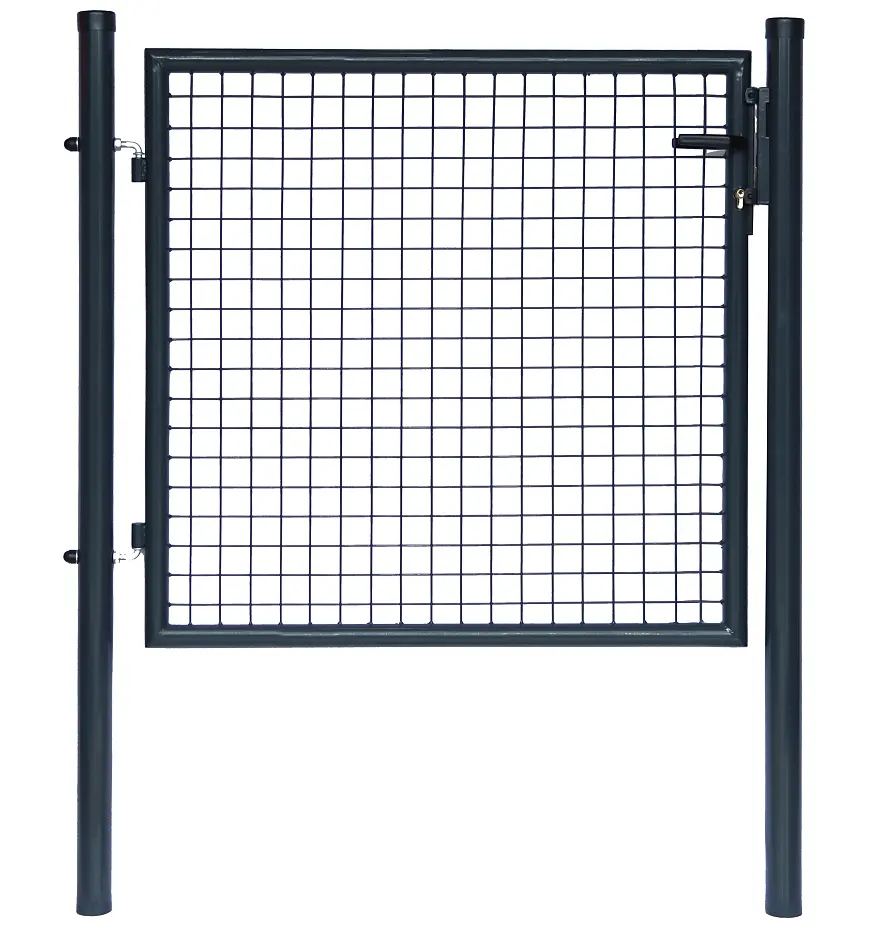The cost of wire mesh fence gates compared to other gate materials for similar applications can vary based on several factors:
- Material Type: Wire mesh gates generally tend to be more cost-effective than gates made from solid metal, especially those constructed from high-grade steel or wrought iron. They might have a comparable or lower cost than wooden gates, depending on the quality of wood used.
- Complexity of Construction: Wire mesh gates are often simpler in construction compared to ornate metal gates or those requiring intricate woodwork, impacting the cost.
- Size and Design: Larger gates or those with complex designs can cost more due to increased material usage and labor requirements. Wire mesh gates can offer cost savings for larger spans due to their lightweight nature.
- Durability and Maintenance: While the initial cost might be lower for wire mesh fence gates, consider long-term costs. They often require minimal maintenance, potentially reducing upkeep costs compared to wooden gates that might require staining or painting, or metal gates that might need rust prevention measures.
- Customization: Extensive customization, such as intricate designs or specific materials, can significantly impact the cost. Wire mesh fence gates can be customized to a certain extent but might offer fewer design options compared to some other materials.
- Installation: Installation costs can vary based on the complexity of the installation process. Wire mesh fence gates might have lower installation costs due to their ease of handling and installation compared to heavier materials that require specialized labor or equipment.
- Longevity: Consider the expected lifespan of the gate. While wire mesh gates are durable, other materials like wrought iron might have a longer lifespan, potentially affecting the overall cost over time.
In summary, wire mesh fence gates often offer a cost-effective solution for fencing applications, especially for larger spans or where minimal maintenance is desired. However, the specific cost comparison would depend on factors such as material quality, customization needs, size, installation complexity, and long-term maintenance requirements, which should all be considered when assessing the overall cost-effectiveness of wire mesh gates compared to other materials.
How does the load-bearing capacity of wire mesh fence gates vary depending on their design and construction?
The load-bearing capacity of wire mesh fence gates varies based on their design and construction factors:
- Wire Gauge and Mesh Design: The wire gauge (thickness) and the specific mesh design influence the gate’s load-bearing capacity. Thicker wires or smaller mesh openings typically result in stronger gates capable of bearing heavier loads.
- Frame Structure: The gate’s frame design and material significantly impact its load-bearing capacity. wire mesh fence gates A well-constructed frame made from sturdy materials such as steel or aluminum enhances the gate’s overall strength.
- Support Structures: Supporting elements, such as posts and hinges, play a role in distributing the load. Properly installed and reinforced posts contribute to the gate’s ability to bear weight without sagging or structural failure.
- Gate Size: Larger gates generally bear more weight, but their load-bearing capacity can be optimized by using appropriate reinforcement methods, sturdy materials, and a well-designed frame.
- Installation Quality: Proper installation is critical for maximizing a gate’s load-bearing capacity. Inadequate installation, such as weak anchoring or improper alignment, can compromise the gate’s structural integrity.
- Purpose and Intended Use: Gates designed for heavier-duty applications, such as industrial or security settings, are engineered with higher load-bearing capacities in mind. Gates used for pedestrian access may have different load-bearing requirements compared to those for vehicles or equipment.
- Material Selection: While wire mesh gates are generally lightweight, the specific material used for the mesh and frame, such as stainless steel or galvanized steel, can affect their overall strength and load-bearing capacity.
To optimize the load-bearing capacity of wire mesh fence gates, it’s essential to consider the intended purpose, select appropriate materials, ensure proper installation, reinforce structural elements as needed, and adhere to manufacturer recommendations and industry standards. Evaluating these factors collectively helps in designing and constructing wire mesh gates capable of handling the expected loads without compromising safety or functionality.

Leave a Reply